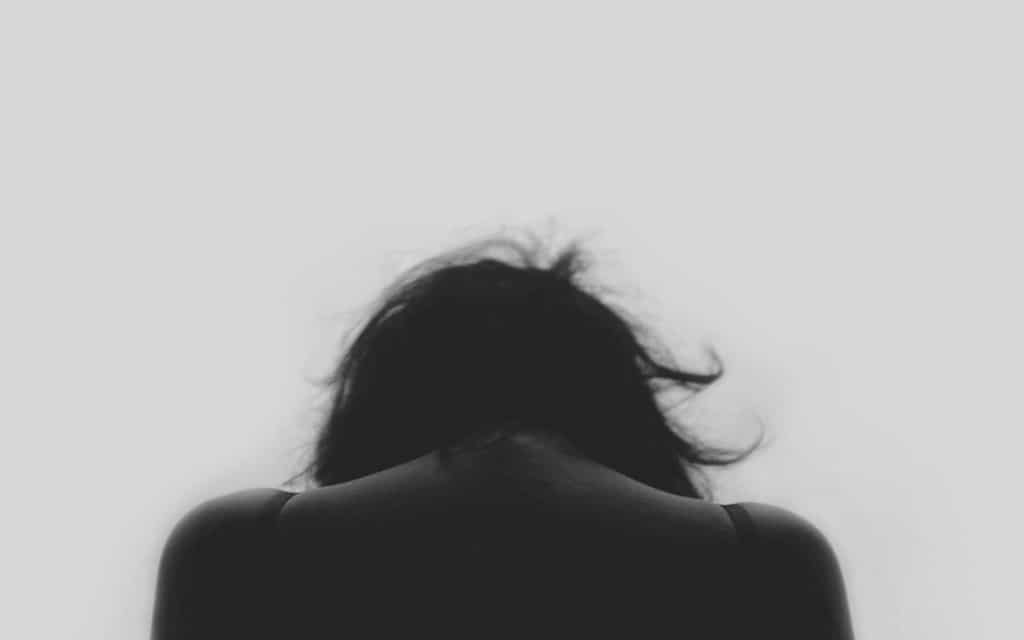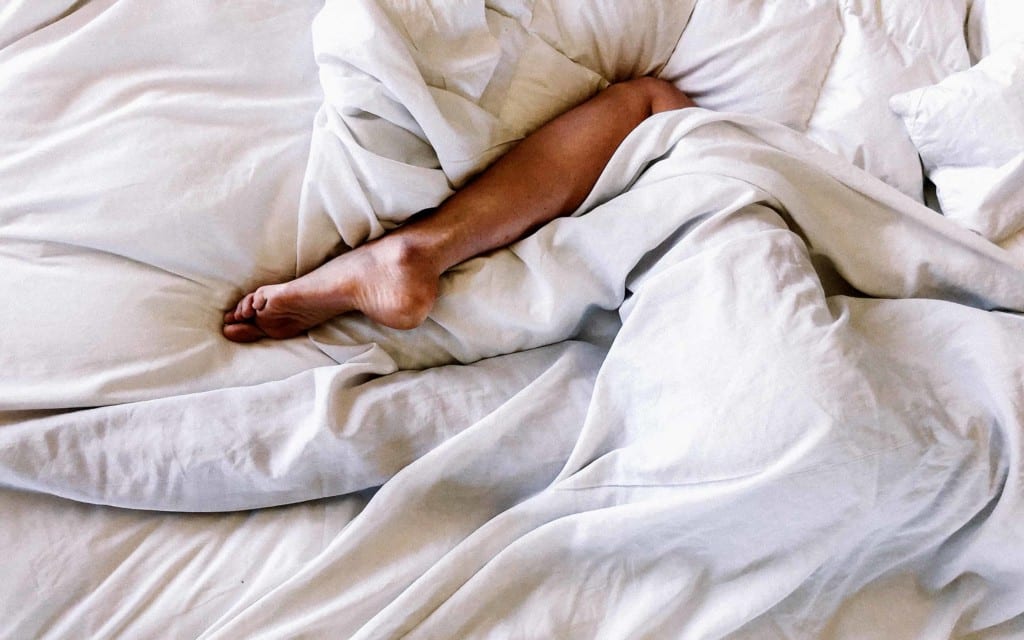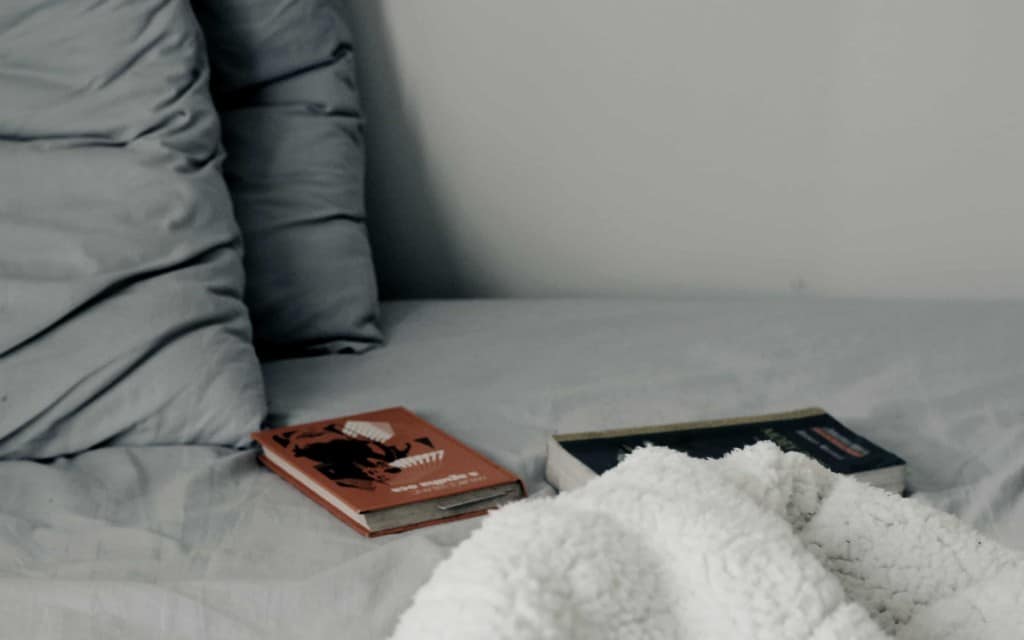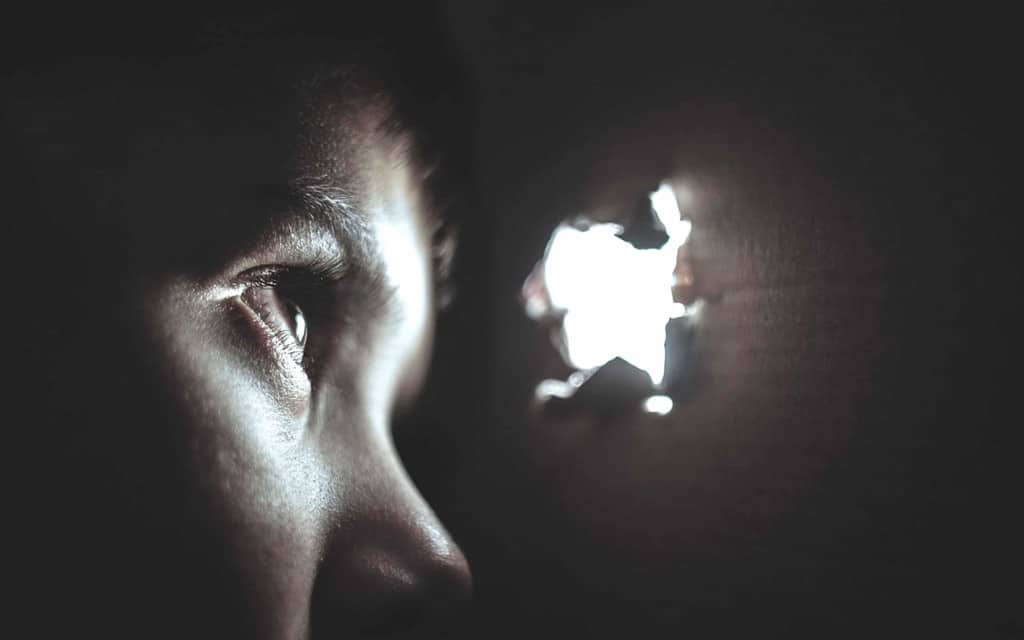Anxiety is a bad bedfellow. The more nervous you feel at night, the harder it is for you to fall asleep. The less you’re able to sleep, the more anxious you feel. It’s a cycle that could drive anyone to the point of insanity.
If your anxiety has become so bad that you’re dreading going to bed at night, then you could even be suffering from sleep anxiety. Here’s what you need to know about how to deal with anxiety before sleep.
What is sleep anxiety? Understanding sleep anxiety attacks
With chaotic work schedules, social lives, and family to think about, getting a full night of restful sleep isn’t as easy as it seems.
Many of us feel as though there aren’t enough hours in the day for a proper evening of rest, and sleep disturbances or disorders perpetuate that belief.
If you’re the kind of person who frequently suffers from nerves, stress, and anxiety, then there’s a great risk you’ll have trouble sleeping and restless sleep.
Sleep disorders are particularly common among people with debilitating anxiety. The more you worry about sleeping, the more your mind starts to fear the process of going to sleep.
Eventually, you place so much weight on the importance of getting to sleep, that just the idea that bedtime is approaching, is enough to fill you with stress.
The anxiety that you might not be able to get to sleep creates a sort of self-fulfilling prophecy. With so much cortisol and adrenaline running around in your system, it’s likely you’ll experience panic attacks at night.
So, how do you end this dangerous cycle of sleep anxiety?
Well, knowledge is power.
Let’s start by answering “What is sleep anxiety disorder” and discovering what it means to you.

What is sleep anxiety? Your sleep anxiety definition
For some (lucky) people, it’s easy to fall asleep as soon as their head hits the pillow.
For others, it can take hours to doze off — no matter how physically and mentally exhausted you feel.
If you struggle with relaxing and falling asleep each night, then you may begin to feel stressed about the concept of going to sleep. That’s when the symptoms of sleep anxiety start to creep in.
Sleep anxiety is also known as somniphobia, hypnophobia or sleep dread. Feeling nervous about the thought of going to bed may mean you’re anxious about going to sleep — or just not being able to sleep as much as you would like to.
Although fear of sleep might sound ridiculous at first, the term “sleep anxiety” usually refers more commonly to the feelings we get when we’re concerned that we won’t be able to get the right amount of rest.
If you’ve ever felt that pit in your stomach when worrying that you’re going to be too exhausted for work in the morning, you’ll know what we mean.
The more you lie in your bed, telling yourself that you need to get to sleep in the next ten or fifteen minutes, the more anxious you become. After all, you’re putting some severe pressure on your brain to shut down. At the same time also flooding it with cortisol that forces it to stay awake.
The more you panic, the more of a nightmare getting to sleep becomes (pardon the pun). What’s more, when you do struggle with the side-effects of not getting enough sleep, your feelings of stress and anxiety get worse the next night.
That means you end up with a dangerous cycle caused by constantly growing feelings of stress, anxiety, and exhaustion. Gradually there’s risk of some nocturnal panic attacks.
Remember, sleep is where your body repairs itself and begins to relax the muscle tensions that are caused by feelings of stress. Without sleep, the stress continues to build up, which can lead to even more problems coping with anxiety in the future.
Sleep deprivation can result in an actual imbalance within the brain, which makes it more difficult for people to think clearly. When you can’t think straight, it’s easy for your emotions to get the better of you. Again even the smallest things become vast sources of anxiety.
In simple terms, sleep anxiety is a form of extreme performance anxiety.

What is sleep anxiety disorder: The symptoms
We all have bad nights of sleep from time to time.
Struggling to get to sleep one night due to feelings of stress doesn’t necessarily mean you’re having a sleep anxiety attack.
Before you start looking at how to get to sleep when you have anxiety or talking to your doctor about treatments, it’s worth checking for the following symptoms:
- Restless sleep: You might find that you’re constantly tossing and turning as you try to get to sleep because your body refuses to relax. This leaves you searching for comfort that you just can’t find. Your pillows and blankets become bizarrely uncomfortable, and you’re always either too hot or too cold.
- Night terrors and nightmares: If you do eventually manage to get to sleep despite your feelings of stress, then there’s a good chance that your dreams will be plagued by whatever you’re worrying about. That’s because your brain is still trying to make sense of the problems that you’re facing — even when you’re asleep. Nightmares can even be so significant that you wake you up during the night, leading to restful sleep.
- Nocturnal panic attacks: A sleep anxiety attack is a panic attack that happens either when or before you’re going to bed. It’s characterised by symptoms like a rapid heart rate, chest pain, rapid breathing, and sweating. These symptoms are often very worrying because they mimic the symptoms of a heart attack. What’s more, because your heart is beating faster, it’s pumping more adrenaline around your body, making it harder to get to sleep.
- Twitching and falling sensations: Sometimes, anxiety and sleep deprivation can have physical symptoms too. For instance, you might notice weird sensations in your muscles, like jolts from your brain trying to keep you awake. Scientists aren’t totally sure what causes these sensations; however, they do appear to be harmless. You may even notice that you feel as though you’re falling when you start to go to sleep, which jolts you awake.
- Limited REM: The various disruptions that happen when you’re trying to sleep with anxiety, mean you generally wake up before you have a chance to get into the deeper stage of REM sleep. Because you don’t get the right amount of REM, your brain doesn’t have the chance to repair and consolidate for the next day.

What causes anxiety attacks at night?
People who suffer from anxiety disorders, are usually more likely to suffer from problems with their sleep. Sleep issues are a natural side-effect of the increased heart rate and rapid breathing that comes from feelings of anxiety.
According to studies, up to 36% of people with insomnia suffer from an anxiety disorder too. People prone to anxiety will also be more likely to experience a sleep anxiety attack, as they’ll start to worry about what their lack of sleep means for their health.
Here are some of the most common causes of anxiety at night:
- Worrying about the future: It’s common to worry about what’s going to happen in the days, weeks, or years to come. After all, no-one has a crystal ball they can use to see into the future. During the day, you’ve got plenty of things to take your mind off this kind of thought. However, at night, “what if” thoughts can often begin to weigh on your mind.
- Being concerned about a lack of sleep: Most of us know that there are dangers to not getting a lot of sleep. The less you rest, the more likely you are to suffer from high blood pressure, diabetes, heart attack, and stroke. If you start to worry about the repercussions of not getting enough sleep, you find it harder to drift off.
- Watching the clock: When you know you have a big day ahead of you, it’s common to watch the clock. Counting down how many hours you might be able to get if you just fell asleep right now. Counting like that is just going to keep your mind too focused.
- Nerves about nightmares: People who are prone to night terrors might find that their mind try to keep them awake to avoid this issue. Fear of nightmares mimics sleep anxiety and obviously makes sleep deprivation worse.
- An over-active mind: Sometimes, it’s not the worry about what’s to come that keeps people awake at night, but nerves about what’s already happened. You spend all night thinking about what happened the day before. You might end up kicking yourself over things you did or didn’t do. This over-thinking makes it harder to sleep.
Anxiety and sleep deprivation: The dangerous cycle
According to the Anxiety and Depression Association in America, anxiety is a side-effect or reaction to stress. It can appear in a number of different ways, from physical changes in blood pressure to anxious thoughts and feelings of tension.
Though anxiety may not make you feel great — it’s not a bad thing. Like physical pain, feelings of anxiety are intended to warn the body and mind that something is potentially dangerous.
Some short-term issues with stress can also draw your attention to things in your life that you need to correct. For instance, if you’re always anxious about going to work, maybe you need to look for a new job?
Sleep anxiety, on the other hand, is a disorder. You’re feeling nerves, when you shouldn’t be. This anxiety isn’t protecting you from anything. It’s just stopping you from falling asleep, which isn’t good for anyone.
Unfortunately, anxiety and sleep deprivation are issues that go hand-in-hand more often than you’d think. The National Institute of Mental health suggests that over 40 million people in the US alone suffer from some manner of anxiety that affects their sleeping.
Doctors have begun to describe sleep disorders and anxiety as “comorbid” concepts. In other words, they both feed each other. The less you sleep the more anxious you feel, the more anxious you feel, the less you sleep.
There are many answers to the question “what causes anxiety attacks at night?”
Many sleep anxiety disorders start when a person experiences a longer period when they’re unable to sleep. This causes them to start worrying about not being able to get to sleep. This worry fires up parts of the brain called the insular cortex and the amygdala. The neural activity here is similar to that we see in severe anxiety disorders and PTSD.
Researchers at the University of California’s Sleep and Neuroimaging lab found that when people were deprived of sleep, their brains reverted back to more primitive activity patterns. This means that people who are kept awake at night are less likely to deal with emotional information contextually.
The good news?
The reverse is also true. If you learn how to sleep better with anxiety again, then you’ll be able to understand your feelings of anxiety more logically and overcome the problem. Eventually, you can use rational thinking to get rid of your panic attacks at night completely.

How to sleep with anxiety: Beating sleep anxiety
So, how do you teach your body how to sleep better with anxiety?
It’s easier than you’d think.
Researchers believe that feelings of anxiety get worse at night because there aren’t as many distractions available. In other words, through the day, you’ve got countless things to do and focus on that keep your mind occupied.
When the time comes to relax at the end of your day, the frontal cortex starts taking over. It brings your mind back to the worries that you’ve been ignoring up until now.
Anxious thoughts suddenly spiral, and once you open that box, it’s tough to close it again. Fortunately, we have some tips on how to stop sleep anxiety.
1. Identify the root of your worries
If you want to know how to overcome sleep anxiety, then the first thing you need to do is find out what’s causing your anxious thinking. Are you nervous about something that you have control over?
Maybe you’re worried that you’re not going to do well in your meeting tomorrow. If that’s the case, you can set aside some extra time in the morning to practice your speech. Frequently the reason for trouble falling a sleep is money worries and debt.
If you’re worried about something you have no control over, then you need to learn how to accept that lack of control.
If your anxiety and sleep deprivation are caused by worries that you’re not getting enough sleep, tell yourself that you’ll work on your sleep hygiene.
2. Read an actual book (not your phone)
Many of us wind down at night by looking at information on our phones, reading through emails, or watching television. However, all of those things are exposing you to a combination of bright lights and emotional stimulants.
If you’re having a hard time winding down, try getting lost in a good book instead. A book will take your mind somewhere else, which distracts you from the stresses of the day. It also gives you something to think about when you’re falling asleep.
Additionally, there are no dangerous LED lights or blue illumination from books that trick your mind into thinking its daytime. That means that you’re not as likely to suffer from disruptions to your circadian rhythm.
3. Proactively reduce anxiety throughout the day
If you’re wondering how to overcome sleep anxiety, one easy step may be to focus on reducing your feelings of nerves throughout the day. It’s much harder to handle stress at night when you’ve got nothing else to focus on.
However, if you take a positive approach to your day and do what you can to reduce stress, you may feel better at night.
For instance, think about how you can eliminate your exposure to stress by avoiding conversations with difficult or stressful people. Another way to cut down on feelings of anxiety is to get plenty of exercise and nutritious food.
Improving your lifestyle can make it much easier for you to deal with your emotions.

How to get to sleep when you have anxiety
Learning how to deal with stress before sleep also means taking steps to create an environment where you welcome and embrace sleep more easily.
Through the day, when you’re feeling nervous about something, you can talk to a friend or turn on the television to distract yourself. However, once the distractions of the day are gone, all you have left are those worries that you’ve been avoiding. It’s no wonder that people struggle with sleep anxiety.
If you’re still wondering how to sleep with anxiety, try the following steps:
1. Create a sleep hygiene routine
Make sure that your body and mind are prepared for sleep by creating a routine. Brush your teeth at the same time each night. Take a hot shower to wind down before bed, or even try meditating for a few minutes before you go to sleep.
It might take a while to find a routine that works for you. However, once you know what you need from your schedule — stick to it. Remember that you should be using the same strategy every day — including weekends.
2. Focus on breathing
Mindfulness and meditation might sound like some new-age mumbo jumbo if you suffer from insomnia. However, if you want to know how to deal with anxiety before sleep, then you might need to come to grips with meditation. Fortunately, there are plenty of apps to help you today, and there’s nothing to stop you from starting slow.
Focus on your breathing, and make sure that you breathe out for longer than you breathe in. This will help to relax your body and mind. Focusing on your breath will also take your attention away from the stressful thoughts that could be causing your anxiety.
3. Fix your sleep environment
Finally, make sure that the environment you go to bed each night will help you to sleep more effectively. When you suffer from insomnia, every little issue can make it harder to get to sleep. For instance, if there’s extra light streaming through your windows at night, invest in some blackout curtains. If you can’t get to sleep because of noises, try some noise-canceling earplugs.
Your bedroom needs to be an oasis of calm. That means no clutter, no excessive heat, and no extra electronics to keep you awake — just you and your comfortable bedding.

Overcoming your anxiety issues
Overcoming issues like sleep anxiety is often easier said than done.
However, there are ways you can improve your sleeping habits, and take steps to reduce the feelings of stress and panic that you get at night.
If you have an anxiety disorder that’s causing your insomnia, or your insomnia is causing your anxiety, the best thing you can do is start by getting to the bottom of what’s causing the issue.
Once you know what you’re worrying about each night, you’ll be able to find ways to remove those feelings of anxiety from your life.
If you’re worried about things that you can’t control, then you can also take steps to help you deal with the anxiety and manage them more effectively. There’s no need to live your life plagued by a sleep anxiety disorder.
To learn more about peaceful sleeping, keep coming back to Siestio for tips, tricks, and useful guides. We’re here to help.
Siestio. Sleep Matters.
Medical disclaimer
You must not rely on the information provided on our website as an alternative to medical advice from your doctor or other healthcare professionals. For more information read our full disclaimer here.







